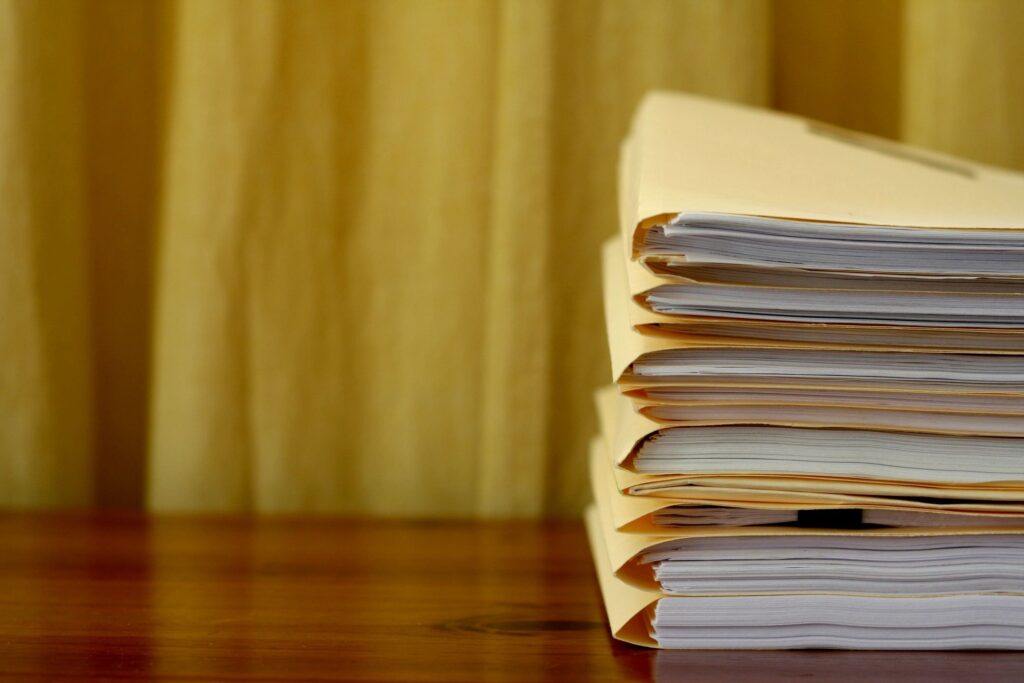
If you’ve recently been injured in an accident and are considering filing a personal injury claim, the thought of going to court may have crossed your mind. The truth is that most claims don’t require a trip to the courthouse and can be handled quickly through an out-of-court settlement with all parties involved. That being said, there are some circumstances that could necessitate litigation in order to ensure fair compensation for pain and suffering or economic loss. In this blog post, we’ll discuss when it might be necessary to file a courtroom lawsuit after experiencing a traumatic accident or injury.
Overview of Personal Injury Claims
When an individual suffers an injury due to the negligence or wrongful actions of someone else, they may be entitled to pursue a personal injury claim. The process involves navigating complex legal procedures to secure compensation for medical expenses, lost wages, and other damages arising from the physical, emotional, and financial impact of the injury. Depending on the circumstances, a claimant may negotiate a settlement or proceed to trial against the responsible party, typically represented by an insurance company. Personal injury claims encompass a wide variety of situations, such as motor vehicle accidents, workplace injuries, medical malpractice, or premises liability. Due to the intricacies of the legal system and the importance of adequate representation, it is advisable for those seeking compensation to consult with an experienced personal injury attorney who can guide them through this formidable and often overwhelming process.

What to Consider Before Filing a Claim
Filing a claim for damages, whether physical or emotional, can be a laborious and challenging process. However, it serves as a vital means for individuals to seek justice and restitution for the negative impact of another party’s actions. Before embarking on this legal journey, it is essential to carefully evaluate the strength of your case, the evidence at hand, and the potential consequences of pursuing a claim. Careful consideration of the financial and emotional toll involved, as well as the time and energy required for litigation, is imperative. Ultimately, discussing your situation with a legal professional and assessing the likelihood of success can illuminate the best path forward, enabling you to make an informed decision about whether the pursuit of a claim aligns with your long-term goals and well-being.
Settlement Negotiations Out of Court
Settlement negotiations out of court offer a practical and often preferred route to resolving disputes, as it allows the involved parties to directly communicate and reach an agreement without the lengthy, expensive and emotionally draining experience of a trial. This process enables the parties to take control of the outcome and tailor it to their specific needs, fostering an atmosphere of collaboration rather than confrontation. Additionally, out-of-court settlements help maintain the privacy of the parties involved, granting them the chance to navigate concerns and risks without public exposure. Settlement negotiations encourage open dialogue, creative solutions, and ultimately, the potential for a more positive resolution for both parties, while conserving valuable time and resources.
When You Should Go to Court
There comes a time in some people’s lives when considering legal action might be the only way to resolve a particular conflict or dispute. Knowing when to go to court is crucial in achieving a fair and just outcome for all parties involved. Generally, it is best to seek the guidance of an attorney to help determine the feasibility of your case and weigh the pros and cons of pursuing legal action. Several factors such as the severity of your claim, the strength of your evidence, and the potential damages you could recover may influence your decision to go to court. Yet, it is also important to keep in mind that litigation can be a lengthy and costly process, so it is essential to exhaust all alternative resolution methods, such as mediation or negotiated settlements, before proceeding with a lawsuit. Ultimately, seeking justice through the court system requires vigilance and patience to ensure that your best interests are served.
Preparing for Court and Gathering Evidence
Undoubtedly, preparing for court and gathering evidence is a critical process that requires careful planning and meticulous attention to detail. A well-structured strategy ensures that not only will you have a strong case to present, but also improves the likelihood of achieving a favorable outcome. As a serious endeavor, it demands extensive collaboration between the involved parties, including legal counsel, witnesses, and other key individuals. Furthermore, proper documentation and organization of evidence is essential, as it enables a more efficient and persuasive presentation in the courtroom. Ultimately, dedicating time and effort to the preparation process may mean the difference between victory and defeat, and can significantly impact the justice served in any court proceeding.
Professional Assistance with Your Personal Injury Claim
Dealing with a personal injury can be a challenging and traumatic experience, leaving you with not only physical pain, but also emotional distress and financial difficulties. In such situations, you need a reliable and empathetic ally to help guide you through the intricacies of filing a personal injury claim. Professional assistance in this field can be invaluable, as experienced attorneys possess the knowledge and skills required to navigate the legal landscape and ensure your rights are protected throughout the entire process. With the right legal team by your side, you can rest assured that your case will be handled effectively, as they work diligently to secure the compensation you deserve. Remember, your well-being is paramount, and seeking professional help can be the key to recovering both physically and financially from the unsettling aftermath of a personal injury.
Whether you’re in the process of filing a personal injury claim or just looking for more information, understanding the choices to make before, during, and after your case can help guide you toward a favorable outcome. Personal injury claims often settle out of court because it is much less expensive and time-consuming than going through a trial with the associated hearings, jury selection, evidence presentation and more. But if an offer isn’t fair or equitable, parties do not agree on fault, the injury is serious, or economic loss is considerable then going through with a lawsuit may be worth your while. It’s important to remember that both sides need to prepare properly for any potential litigation by gathering documents and testimonies as well as researching legal strategies ahead of time. Moreover, having professional assistance throughout this journey can help ensure that all legal procedures are followed correctly. If you have any questions about your personal injury claim don’t hesitate to contact us today.

